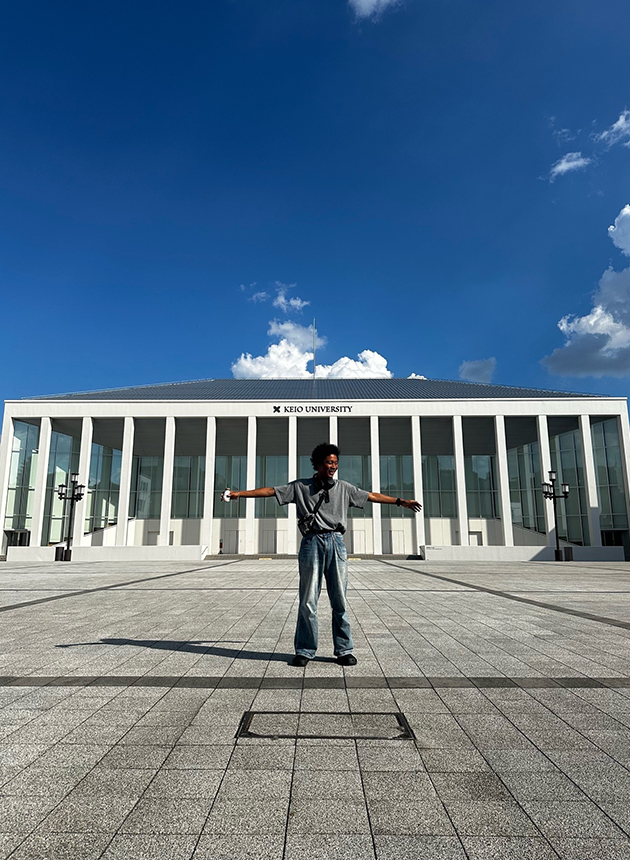Header start
- Home
- Admissions
- Undergraduate Admissions
- Admissions Procedures for the PEARL
-
PEARL Student Voices
PEARL Student Voices
Content start

Q1: What’s the story behind your coming to Japan and picking Keio?
The main reason I moved out of my home country was because I felt myself getting too complacent with my environment. I was not being challenged to grow as a person anymore, leading to my desire for new surroundings in which to grow. That’s where Japan came in—a country with an interesting background and history, nice, agreeable living standards, and, most importantly, a significant difference in culture. A difference that has so far prompted me to question myself time and time again—not only forcing me to adapt, grow, and expand my horizons, but also helping me better understand who I am as an individual.
In that sense, Keio has been an instrumental factor in my growth. Everything, from the education to the people, has played some role in who I am today, and I couldn’t be more thankful. Keio’s reputation is a large part of what brought me here, and upholding said reputation is a great source of pride for me.
Q2: how’s real university life in Japan been treating you so far?
University life here is honestly great. Especially in the Tokyo region, there’s never a shortage of things to do and an endless number of places to explore. I’ve been here for over half a year now, and I haven’t been bored for even a moment. The people and the atmosphere here at Keio are all welcoming and fun to be around.
I’d say the biggest challenges that come to mind stem more from living on your own, away from your family, rather than from Japan itself. If anything, Japan actually helps ease those hurdles with the sheer convenience of all the household goods and essentials you could ever need. If there were an “easy mode” for living on your own, it would definitely be Japan!

Q3: Can you share academic highlights since you joined Keio?
I really liked the mandatory Macroeconomics class. The lectures were great, the course was very transparent, and the professor, Fujiwara Ippei, was splendid at explaining the basics of Macroeconomics—even to people who had never taken economics before! I’d have to say his lectures were the most enjoyable part of last semester, next to some of the study sessions my friends and I used to have in the library.
Q4: Can you tell us a little about your extracurricular activities at Keio, as well as your pastimes?
There have been so many opportunities for extracurriculars, I don’t even know where to start! For one, I joined Keio Oysters, a student body in PEARL, and that has been a lot of fun. I’ve also been working on some music and recently started practicing with a few of the band circles, which I’ve really enjoyed—the other members were incredibly welcoming. I’ve also been able to play some basketball here and there, thanks to a few student-organized events that made that possible. On top of that, I’ve been going out and about, trying to speak with locals and improve my Japanese, which has honestly become one of my favorite pastimes. That, along with just exploring more and more of the Kanto region.
Q5: Any advice, tips, or messages for future Keio students?
To be frank, if you have even an ounce of motivation to come study here, you absolutely should. I promise you won’t have any regrets. To reiterate, I truly believe that Japan and Keio offer excellent environments for studying, and they can be catalysts for your personal growth. Ultimately, it all depends on how you make use of these surroundings to your advantage. Also, try to stay true to yourself. A big part of moving to a different country is adapting to a new culture. However, one unique advantage international students have is the experience of engaging with different cultures. Being able to use that privilege—to pick and choose the positive elements of each culture and incorporate them into your own life and personality—that’s what I came here to do, and I urge you to do the same!

(This interview is from May 2025.)
Footer start
Navigation start


